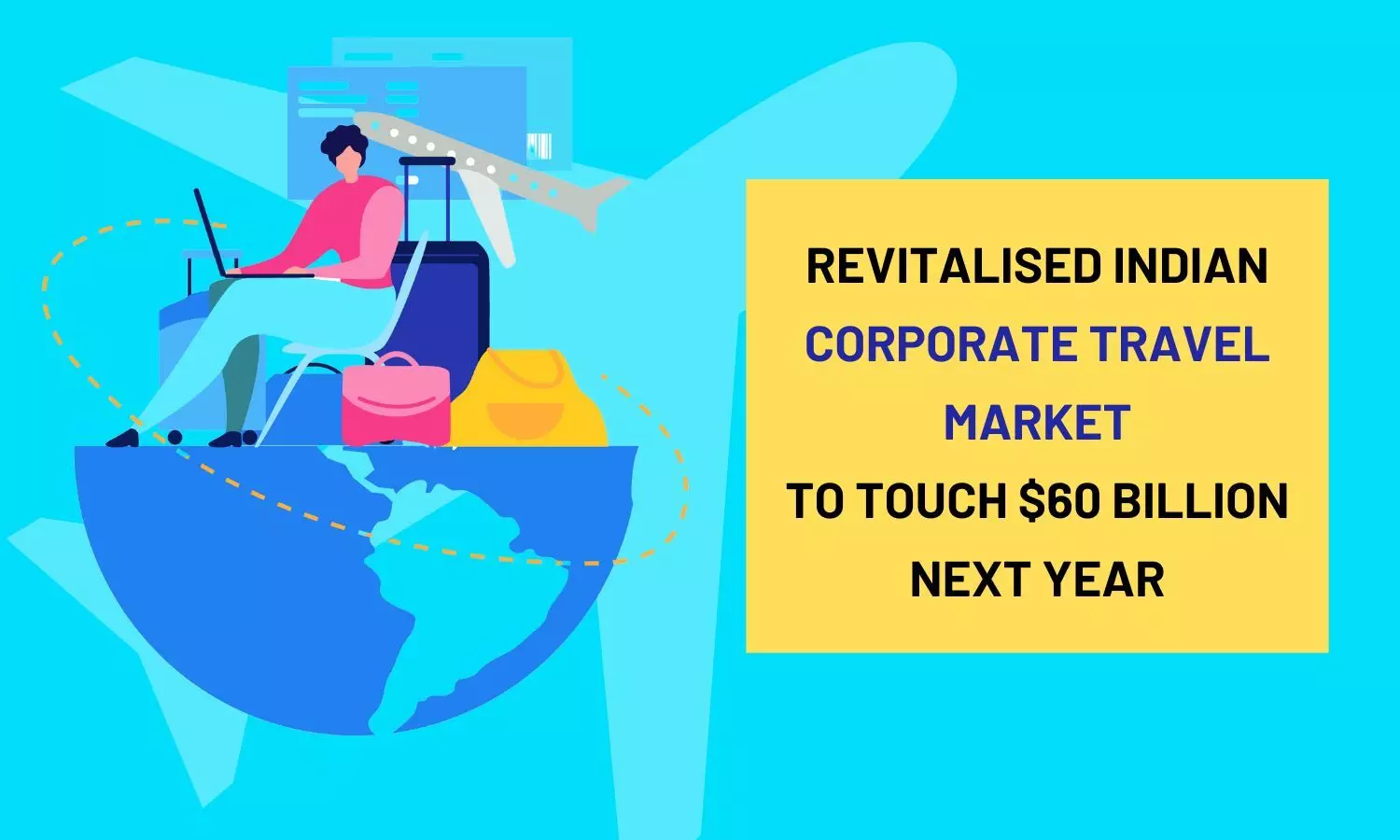Revitalised Indian corporate travel market to touch $60 billion next year
Mobile technology is having a profound impact on corporate
image for illustrative purpose

The new breed of corporate traveller expects to be consulted and informed about all elements of the company travel programme and every aspect of their journey. This trust will cement a partnership that encourages travellers to stay within the policy
The Asia Pacific business travel market is primarily driven by the rising middle class and stable economic growth in the region. The increasing adoption of technology in travel management processes is also contributing to the market. Additionally, rapid digitization in the tourism and corporate sectors, coupled with the penetration of the Internet of Things (IoT), has helped both travellers and travel operators to operate swiftly and efficiently. Furthermore, there has been a rising trend of B-leisure travel, which incorporates business with pleasure elements while offering recreational activities for relieving stress and improving work efficiency.
The Asia Pacific business travel market size reached $ 478.2 billion in 2023. Looking forward, IMARC Group expects the market to reach $ 816.2 billion by 2032, exhibiting a growth rate (CAGR) of 5.9% during 2024-2032.
The Asia-Pacific region is the fastest-growing in the world for corporate travel. By 2025, corporate travel spending in Asia-Pacific will more than double to $900 billion from the current $400 billion and will make up half of the global total, forecasts by Amadeus show.
This creates immense opportunities and formidable challenges for the travel sector and for corporate travel managers. Trade within the region is a key driver. We expect to see a dramatic shift in corporate travel spending from traditional markets such as Australia, Japan, Hong Kong and Singapore to emerging markets like China, India, Indonesia, Thailand, Malaysia and the Philippines.
India is now a $25 billion corporate travel market and is expected to more than double to $60 billion by 2025. Asia’s mix of industries is diverse and diversifying. Agriculture, electronics, fast-moving consumer goods and infrastructure projects have now been complemented by financial services and mining as two of the fastest-growing sectors.
The huge growth and evolving mix of markets and industries brings a greater complexity to travel. Organisations of all shapes and sizes must rethink corporate travel and build robust programmes to manage it.
Mobile technology is having a profound impact on corporate travel as workers taking trips now expect information to be at their fingertips – anytime and anywhere. The Asia-Pacific region has led the charge as global smartphone usage grew 25% from 2013 to 2014, with China now the largest smartphone market in the world and India set to knock the United States from second place by 2016.
In Asia, 90% of corporate travellers own a smartphone or tablet. More than half of these people use devices to manage travel on the move, including destination research and booking management. Research is the most common activity for travellers using mobile devices on the road. But confidence in doing transactions is on the rise, with more than half having made a business travel booking on their mobile devices in the past 12 months. Indian travellers are most likely to be transacting on their devices.
More than half of corporate travellers across Asia Pacific now provide feedback on their trips via the internet or a corporate intranet site, particularly in Hong Kong and India. Companies with an effective user-generated content strategy can speed up the adoption of the self-booking tool and drive traffic to online and offline channels within the corporate travel policy.
The new breed of corporate traveller expects to be consulted and informed about all elements of the company travel programme and every aspect of their journey. This trust will cement a partnership that encourages travellers to stay within the policy. The relationship can be strengthened by providing mobile solutions, introducing resources like user-generated content and allowing employees to combine work and leisure travel. Consultation about negotiated savings, the benefits of an end-to-end online solution and the role of a duty of care programme can also build trust and compliance.
“In 2024, GBTA will continue its focus on serving the unique needs and interests of APAC through a long-term strategy including the development of tailored programs and initiatives. We are again excited to co-locate our Singapore conference with Worldwide ERC which offers unique opportunities for connection and collaboration for business travel buyers, suppliers, and companies in the region,” said Catherine Logan, GBTA Regional Senior Vice-president for EMEA and APAC.
GBTA has also welcomed seasoned hospitality practitioner, Elle Ng-Darmawan, who joined the association last December as its new Regional Director for APAC.
Based in Singapore and reporting to Logan, Ng-Darmawan brings extensive expertise in membership engagement, meetings, incentive, conference and events (MICE) sector and a deep understanding of the region to support GBTA’s initiatives.
GBTA will continue to leverage the expert advice of its APAC Board of Directors in shaping its learning, community, and advocacy programs in the APAC market.

